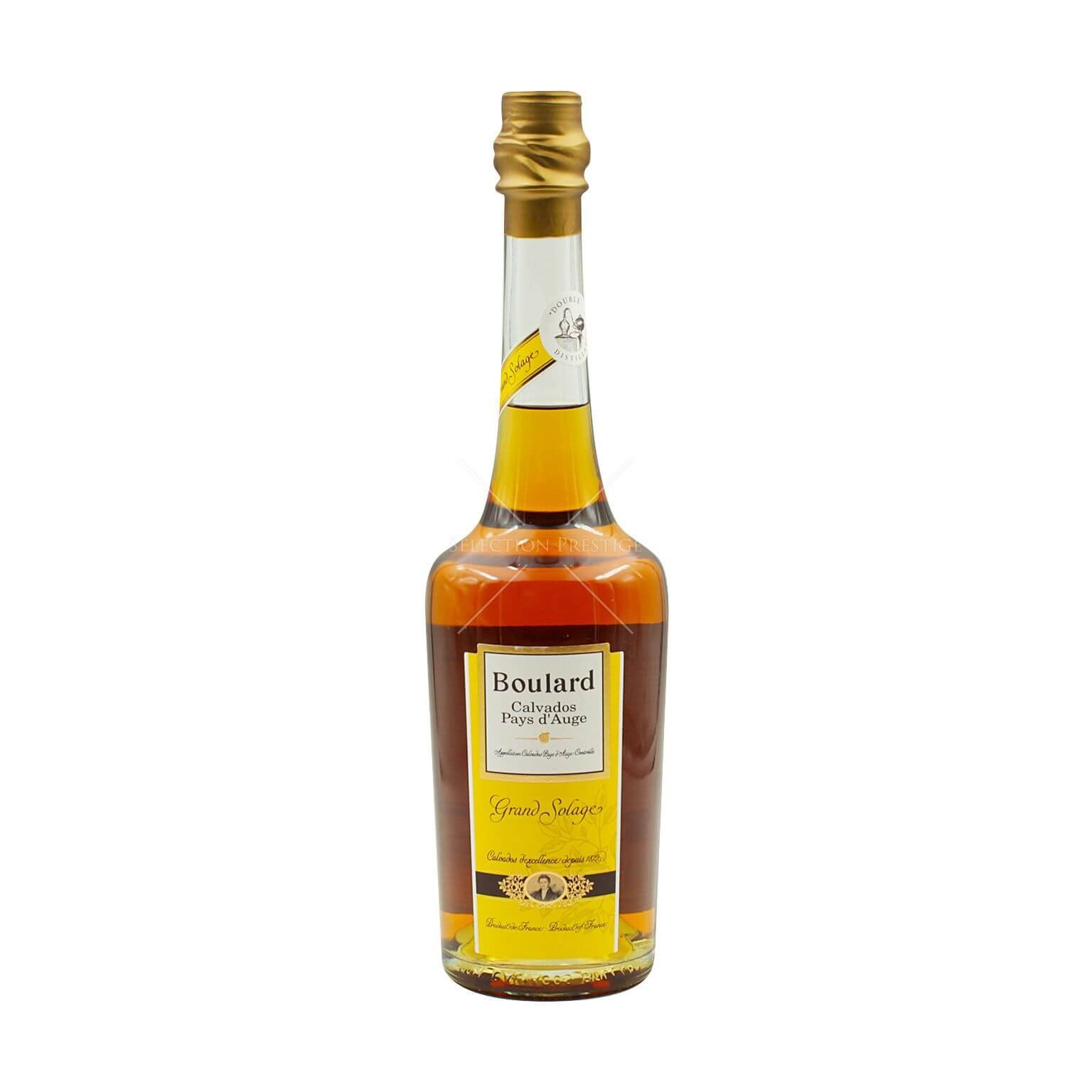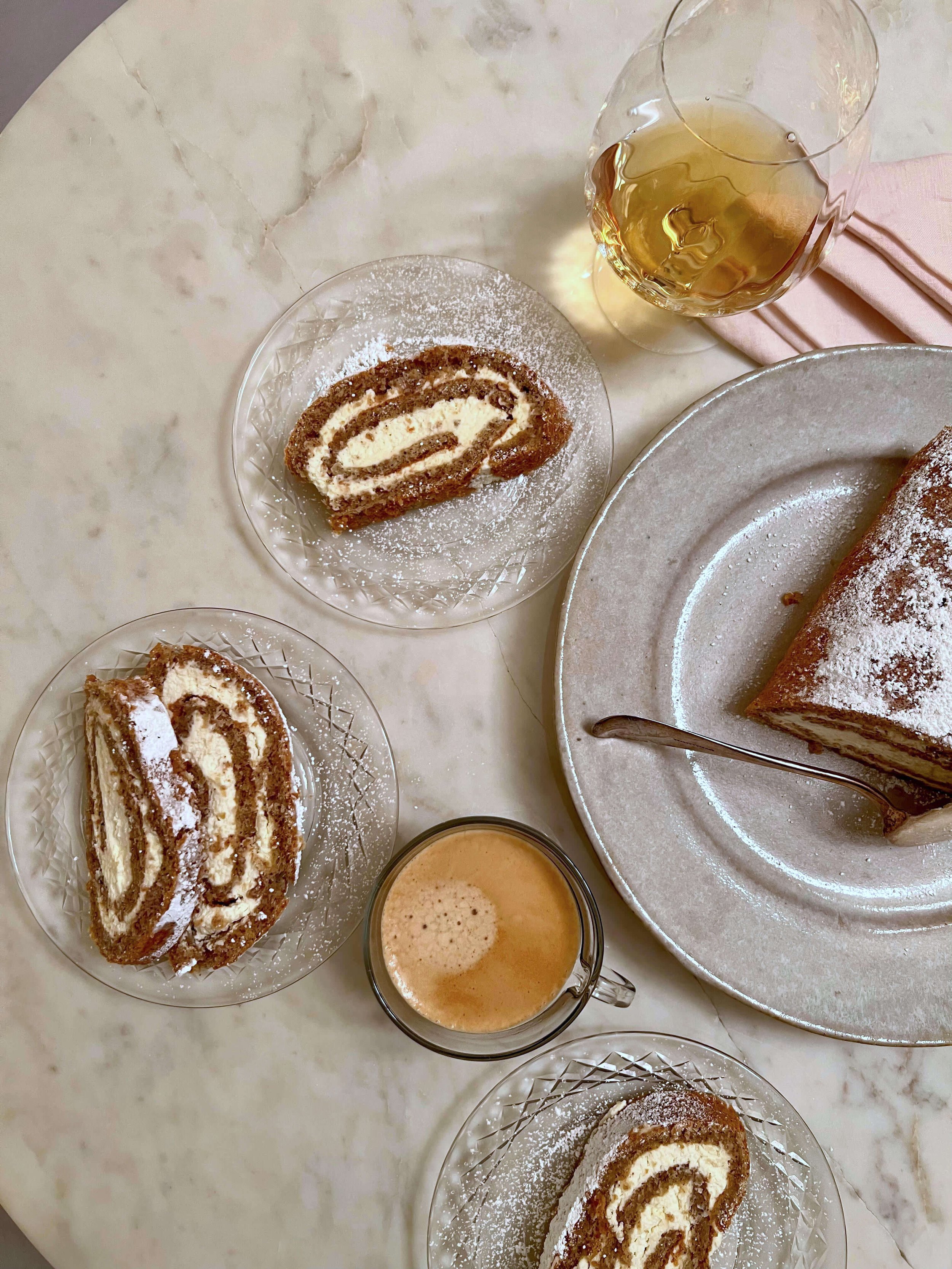How the French Use a Surprising Ingredient to Make Great Cakes
“When in doubt, add a splash,” begins the section on sourcing spirituous ingredients in Aleksandra Crapanzano’s Gâteau: The Surprising Simplicity of French Cakes. In Gâteau, Crapanzano demystifies the idea that French baking is overly complicated. “The French are really, really practical, and they're very frugal,” she says. “If they're just making dinner at home on a weeknight, they always have dessert, and what they tend to do is work from a lot of really basic recipes.” While a typical, weeknight cake recipe might only take 10 minutes to go from the bowl to the oven, one of the ways in which even basic French cakes often seem more elevated is by the myriad ways booze is employed to enhance flavor and texture, and take an everyday cake into special occasion territory, whether by wine, liqueur, or even basic spirits.
In the 100 or so recipes included in Gateau, about half use alcohol in some way, or offer a variation that includes a spirituous component. “Rum is used in French cakes almost as much as we use vanilla,” says Crapanzano. Whether or not you’re inspired to dabble in the surprising simplicity of French cakes, Crapanzano takes us through some of the simple ways booze can be employed to enhance your own baking, from every day to holiday.
How to Use Booze in Cakes
For Enhanced Complexity
Aleksandra Crapanzano
“The French will turn to booze to add a depth of flavor, even if they’re not necessarily trying to make a boozy cake the way we think of a Caribbean rum cake, or a Southern bourbon cake,” says Crapanzano. “What they’re really trying to do in a very simple way is add a complex dimension of flavor very easily. If you add some Armagnac, or maybe some prunes soaked in Armagnac, to the most basic recipe, suddenly you are taking a 10-minute recipe, and maybe with 1 extra minute, turning it into something that is exquisitely dinner party worthy.”
Because booze gets added here before baking, the outcome is more about the depth of flavor of the added spirit, rather than the alcoholic impact. Vanilla or other flavored extracts, which tend to be the go-tos of American baking, are also composed of alcohol, but don’t give a spiritous component to their resulting cakes.
For Augmented Flavor
To that end, there’s no reason not to add a spirit or liqueur to a cake recipe in place of an extract, especially where it can enhance the specific flavors in the cake. While vanilla extract primarily amplifies the perception of sweetness or sugar in your cakes, the right spirit or liqueur can help amplify actual flavors.
“It's a way of really increasing flavor and adding a level of complexity to something that is often just a back pocket recipe,” says Crapanzano. “If you’re making a raspberry cake, maybe you add a little bit of framboise, Calvados for an apple cake, or crème de pêche for a peach cake, especially when it’s hard to find fantastic-tasting stone fruits. The right spirit will simply augment the flavor of whatever it is that you're showcasing, and your recipe gets this little added dimension.”
For Soaking Syrups and Génoise Cakes
“Gâteau” includes a number of cakes that utilize a “soaking syrup”, which is one way in which French recipes employ booze in a way that can actually turn cakes a little wonderfully boozy. “You’re essentially making a cocktail,” says Crapanzano, where equal parts of a simple syrup and a spirit are combined to create a flavorful elixir with which to brush, or in certain cases, even soak, cake layers.
Génoise in particular is a style of French cake that is purposefully made in such a way as to be structurally sound, and a little on the dry side left unadorned, but adornment is the whole point of a génoise sponge. “Brush it with liqueur and suddenly it makes sense,” says Crapanzano. If you’re working with a sturdy cake, preferably a homemade one, you can give it the boozy treatment with just a light brushing of spirit onto the layers, or a drizzle of a boozy soaking syrup.
For “Dress Up” Purposes
Beyond the cakes themselves, glazes, ganaches, chantillies, and buttercreams are all candidates for spiking, toward the elevation of your everyday cakes, French-style. “Ganache is almost always spiked with a beautiful dark rum,” says Crapanzano, and glazes offer a bit of a surprise factor, since a poured glaze doesn’t necessarily result in the same amount of glaze in each bite.
In a layered cake, “You’re not necessarily going to spike every element,” says Crapanzano, “but it's not necessarily only one element either,” and many of the cakes in “Gâteau” employ complimentary spirits in different elements of an elegantly layered cake.
Dinner Party Yogurt Cake Recipe
“Every child in France learns a basic yogurt cake recipe in their nursery school, as it could not be easier to memorize or to make. French yogurt is sold in little half-cup jars, and these jars can serve as the measuring cups in this recipe. A few small changes, including a Grand Marnier soaking syrup and a rum glaze turn a childhood favorite into a dinner party classic.”
Editor’s note: While you can use any Grand Marnier you like— Grand Marnier Cordon Rouge, Grand Marnier Cuvee du Centenaire and Grand Marnier Louis Alexandre were all gold medal winners in the 2022 NY International Spirits Competition.
Cake:
1 Cup granulated sugar
Grated zest of 1 orange
½ Cup whole plain yogurt
3 large eggs, at room temperature
1 tsp vanilla extract
1 and ½ Cups all-purpose or cake flour
2 tsp baking powder
¼ tsp fine sea salt
½ Cup neutral oil such as canola or grapeseed
Preheat oven to 350 degrees Fahrenheit. Butter and flour an 8 ½ x 4 ½-inch loaf pan.
Combine the sugar and orange zest in a bowl, and, using your fingertips, rub them together to distribute the citrus oils.
Whisk the yogurt and eggs together. Add the zesty sugar and vanilla and whisk to thoroughly combine. Add the flour, baking powder and sea salt and whisky just to combine. Add the oil and whisk until just homogenous.
Pour into the prepared pan and bake for 35-45 minutes, or until a knife inserted in the center comes out clean.
Soaking Syrup
2 Tbsp Grand Marnier
2 Tbsp orange juice
½ Cup superfine sugar
Prepare the syrup by heating the Grand Marnier and orange juice in a microwave until warm, but not hot. Stir in the sugar to dissolve. Drizzle this over the cake while still warm.
Glaze
¾ Cup apricot jam or marmalade
2 tsp rum or water
To make the glaze, warm the jam with the rum over low heat. Strain. Brush onto the cake once it has cooled to room temperature.
Recipe reprinted by permission of Aleksandra Crapanzano and Scribner




